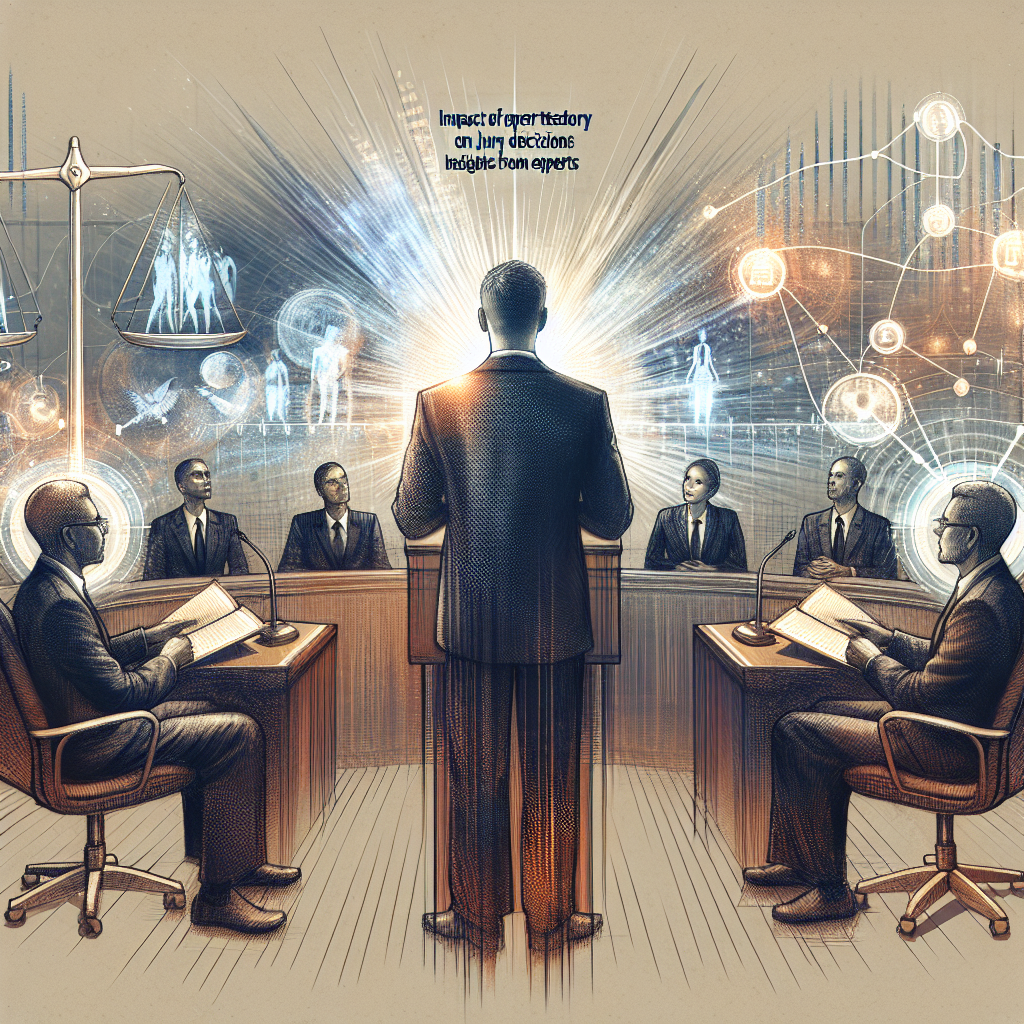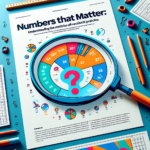
Introduction
In the realm of the legal system, few elements can sway jury decisions as powerfully as expert testimony. Whether it’s a forensic scientist detailing blood spatter patterns or a psychologist discussing the mental state of a defendant, the impact of expert testimony on jury decisions is profound. The ability of jurors to decipher complex issues often relies heavily on the insights delivered by these experts. But how much weight do jurors assign to this testimony? And how can the presentation of expert opinions break down intricate concepts into easily understandable segments? This article will delve into the impact of expert testimony on jury decisions, drawing insights from professionals within the field, and providing an engaging exploration that navigates through case studies, expert analyses, and actionable takeaways.
Understanding Expert Testimony
What is Expert Testimony?
Expert testimony refers to evidence provided by a qualified professional, or expert, who possesses specialized knowledge in a certain field. The court permits such testimony to inform jurors about complex subjects that may be beyond their general understanding. The key elements of expert testimony include:
- Qualifications: Experts must demonstrate specialized knowledge through education, training, or experience.
- Relevance: The testimony must be applicable to the case at hand.
- Reliability: The methods used must be scientifically accepted and reliable.
The Role of Experts in the Courtroom
Experts serve two primary functions in the courtroom:
Educating Jurors: Experts often break down complicated technical information into understandable terms.
- Influencing Decision-Making: The weight placed on expert testimony can significantly influence jury perceptions, ultimately affecting verdicts.
The Mechanisms Behind the Impact of Expert Testimony
Persuasion Through Credibility
The impact of expert testimony on jury decisions is often intertwined with the perceived credibility of the expert. Several elements contribute to the credibility factor:
- Experience: An expert’s background and experience in their field can instill confidence in jurors.
- Communication Skills: Experts who communicate effectively can enhance understanding and retention of complex information.
- Bias Awareness: Jurors may judge the reliability of the testimony based on perceived biases; thus, impartial experts often hold more sway.
Cognitive Overload and Simplified Messaging
Human cognition has its limits. When jurors are bombarded with information, they may resort to heuristics—mental shortcuts that simplify decision-making processes. Here, expert testimony serves a crucial role:
- Clarity and Simplicity: Experts who break down complex scientific or legal concepts into simpler terms facilitate better understanding among jurors.
- Framing Information: How an expert frames certain facts can significantly influence jurors’ perceptions.
Case Studies Highlighting the Impact of Expert Testimony
Case Study 1: The McDonald’s Coffee Case
In the infamous Liebeck v. McDonald’s case, expert testimony was critical. Stella Liebeck, the plaintiff, suffered severe burns from hot coffee, leading to a complex legal battle.
Analysis
- Expert Witness: The plaintiff’s expert provided insights into coffee temperature and the likelihood of burns.
- Impact on Jury: Effective presentation made the jurors more sympathetic to Liebeck, ultimately leading to a favorable settlement.
Case Study 2: The O.J. Simpson Trial
The O.J. Simpson trial remains a landmark example where expert testimony had a pivotal role in jury decisions.
Analysis
- Forensic Evidence: Experts on DNA evidence helped jurors understand the complexities of genetic testing.
- Decision-Making: Jurors struggled with scientific explanations and the concept of reasonable doubt, which showed the dual-edge sword of expert testimony.
Case Study 3: The Penn State Child Molestation Case
This case illustrates how psychological experts can shape jury perceptions, particularly concerning the mental state of individuals involved.
Analysis
- Psychological Insights: Expert testimony regarding the behavior of both victims and defendants aided jurors in contextualizing the heinous acts.
- Result: The nuanced understanding provided by experts likely influenced the jury’s final verdict.
Tables and Charts for Clarity
| Case Study | Type of Expert Testimony | Key Impact on Jury Decision |
|---|---|---|
| Liebeck v. McDonald’s | Burn Injury Expert | Humanized the plaintiff’s experience |
| O.J. Simpson Trial | DNA Forensic Expert | Created doubt regarding evidence reliability |
| Penn State Case | Psychological Expert | Offered insights into victim behavior |
The Hidden Impacts of Expert Testimony
Influence on Jury Deliberation
The impact of expert testimony on jury decisions is not just about individual cases; it shapes deliberation dynamics. Jurors may come to discussions with preconceived notions, but expert insights can pivot their viewpoints.
- Group Dynamics: During deliberation, jurors often reference expert statements, either to support their arguments or to challenge others’ views.
Real-World Implications
The ramifications of expert testimony extend beyond courtrooms. They inform public perception and policy changes, highlighting the need for accurate, reliable expert input in legal matters.
Actionable Insights: What Can Be Learned?
- Experts Must be Authoritative: Invest in demonstrating your qualifications as an expert to influence jury perceptions effectively.
- Communicate Simply: Avoid jargon; prioritize clarity to ensure jurors fully comprehend your testimony.
- Understand Bias: Being aware of potential biases can help you maintain trust and credibility.
- Engage with Jurors: Find ways to make complex subjects relatable and engaging, which can lead to more favorable outcomes.
- Consider the Jury Dynamics: Recognize the influence your testimony may have on jury discussions and deliberation patterns.
Conclusion
The impact of expert testimony on jury decisions cannot be overstated. It is an intricate dance of credibility, clarity, and cognitive influence that shapes the very fabric of courtroom decisions. By understanding these elements, both legal professionals and experts gain valuable insights into navigating the judicial landscape effectively. As juries seek truth amidst complexity, expert testimony acts as a guiding light, illuminating the paths toward informed decisions.
FAQs
1. What qualifies someone to be an expert witness in court?
An expert witness must possess specialized knowledge through education, experience, and training. Their expertise must be relevant to the case at hand.
2. How does juror bias affect the perception of expert testimony?
Juror bias can cloud judgment, potentially leading them to dismiss expert testimony if they perceive the expert as biased or untrustworthy.
3. Can expert testimony ever be detrimental to a case?
Yes, if the expert fails to communicate effectively, or their testimony is deemed irrelevant or overly complex, it may confuse jurors rather than aid them.
4. How often do jurors request clarification from experts during testimony?
Jurors may seek clarification, particularly if experts use complex terminology or delve into intricate concepts. It is crucial for experts to be prepared for this.
5. What is the future of expert testimony in the courtroom?
As legal cases continue to evolve, the role of expert testimony will likely grow. Ongoing education and training for experts will be essential in adapting to new technologies and legal scenarios.
Navigating the intersection of expertise and legal proceedings undeniably underscores the importance of expert testimony in jury decisions. As we move forward, highlighting and refining how experts communicate their knowledge will remain essential for a just and informed judicial process.















